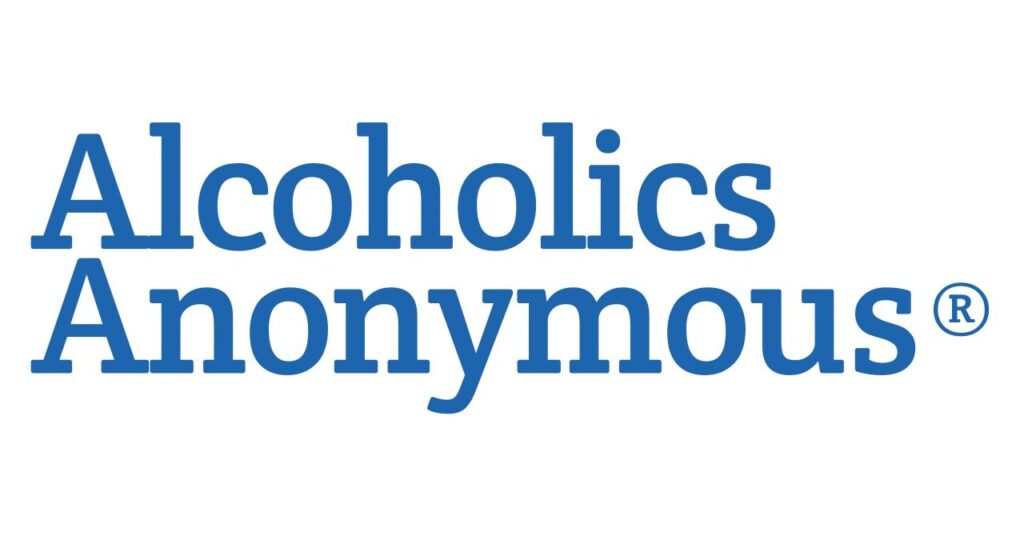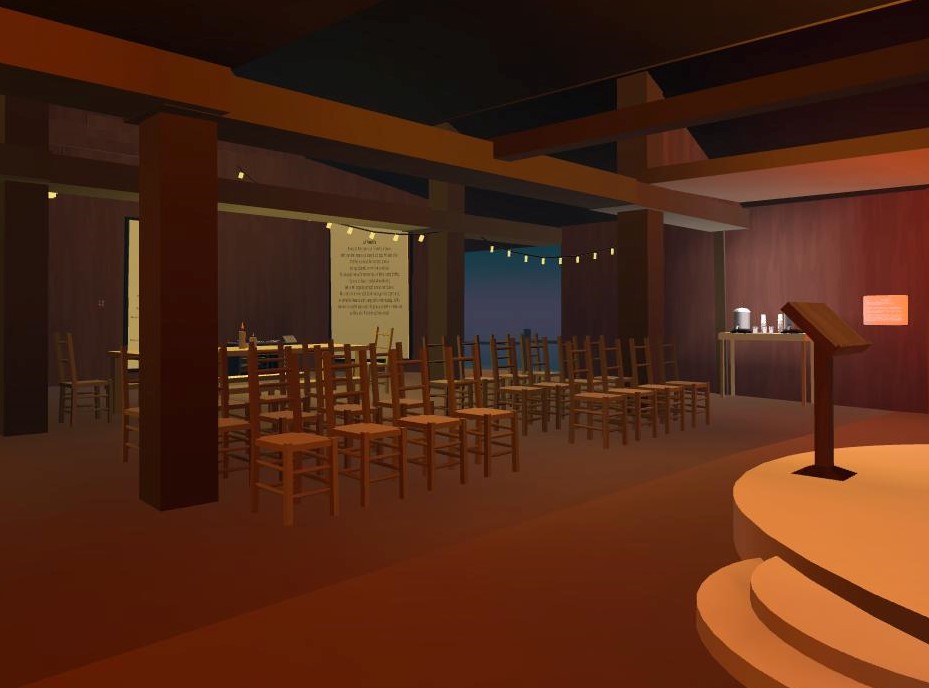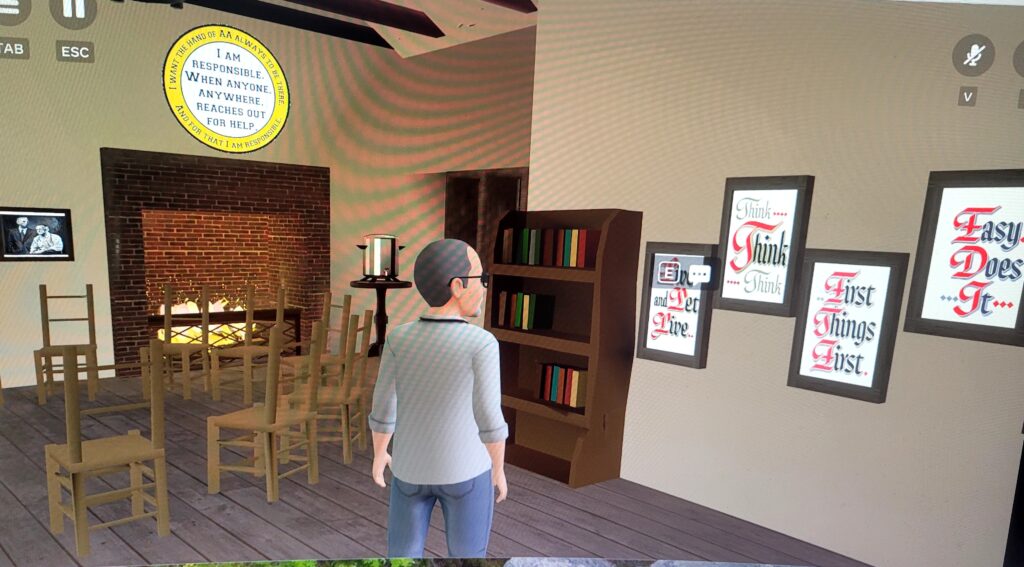Alcoholics Anonymous (AA) has been a cornerstone for individuals seeking recovery from alcohol addiction since its founding in 1935. With millions of members worldwide, AA meetings provide a structured environment for people to share their experiences, struggles, and progress. The core principles of AA, such as anonymity, support, and accountability, help foster a safe space for those in recovery. Over the decades, AA has adapted to changing times, from phone meetings to Zoom, but a new frontier is emerging: virtual reality (VR) meetings.
These days, thanks to VR technology, people have redefined how we interact through the use of headsets like the HTC Vive or the Meta Quest 3, and platforms such as VRChat and Meta Horizon Worlds are expanding the ways people connect and one organization, AA, is turning to VR to create a space where meetings can take place. This virtual shift allows members to gather in immersive, 3D environments, where they can experience a meeting as if they were in a physical room together. To better understand this evolution, XR Update interviewed one organizer who has been a part of AA for the last 14 years and is now creating meetings in VR spaces to help others. His perspective offers a glimpse into how virtual reality could reshape the future of recovery.
Because organizers and AA members are careful to avoid using last names so they don’t discourage anyone who’s just starting their recovery journey, we will simply refer to this organizer as Paul H.

A Personal Journey into VR Meetings
For Paul H., the pandemic was the catalyst that inspired him to bring AA into the virtual reality space. “In-person meetings were canceled, and Zoom meetings, while better than nothing, weren’t filling the void I felt from the lack of human interaction,” he recalls, adding, “I also had a desire to expand access to AA meetings in a way that feels personal and safe, but also modern and accessible.”
Paul recognized that some members of AA, particularly those dealing with health issues, social anxiety, or geographic barriers, faced significant challenges in attending in-person meetings. Many members were missing out on the camaraderie that in-person gatherings foster. The immersive nature of VR offers a solution by creating a sense of presence that Zoom or other video platforms cannot replicate.
Anonymity and Immersion: The Power of VR
One of the key challenges AA members face in digital spaces is maintaining anonymity. The VR environment solves this problem in a unique way by allowing participants to engage through avatars. Paul explains, “The use of avatars allows for that anonymity while still giving a sense of presence; it’s a perfect balance between maintaining privacy and fostering genuine human connection.”
Unlike traditional video calls, where members might turn off their cameras or multitask, the VR experience encourages full presence. Paul tells me that when people put on their headset, they are fully present in the virtual world. You’re not just another voice on a phone or face in a video grid, but a person sitting in a virtual room, sharing and listening in a way that feels more real as if you were in a physical meeting space.
Challenges and Solutions: Upholding AA’s Traditions in VR
While VR meetings offer several advantages, they are not without challenges. Maintaining confidentiality and accountability in these digital spaces requires education and clear protocols. “We’ve put in place protocols, similar to in-person meetings, where we remind everyone that what’s said in the meeting stays in the meeting,” Paul says. “The accountability aspect is self-regulated, just as it is in physical meetings, but the anonymity that avatars provide can help prevent accidental breaches of privacy.”
Paul emphasizes that maintaining AA’s traditions and structure is key to preserving the authenticity of the experience, even in a virtual environment. The meetings follow the same format as in-person ones, with chairpersons, literature readings, and member shares. “The biggest difference is the platform, but the values and principles remain exactly the same.”
VR as a Safe Space for Recovery
One of the most significant benefits of VR meetings is the safe space they provide for people who might feel uncomfortable attending traditional meetings. VR has been especially beneficial for those who struggle with social anxiety or the fear of stigma. Paul elaborates, saying, “In VR, people can choose how much of themselves to reveal, and this often helps individuals feel more comfortable opening up.”
The avatar-based system allows members to maintain control over their identity, contributing to a more open and honest atmosphere. Paul has witnessed individuals who would remain silent in a traditional meeting become active participants in VR, thanks to the sense of privacy and security the platform offers.

The Future of AA in Virtual Reality
While Paul doesn’t believe that VR meetings will replace in-person gatherings entirely, he sees them as a powerful complement. “I do think VR meetings could become a common, or at least complementary, option for recovery groups,” he says. For individuals who are unable to attend physical meetings due to location, physical limitations, or personal preference, VR offers a valuable alternative.
Paul also highlights the unique advantages of VR over platforms like Zoom. “In Zoom, there are several problems solved by VR. Placing a headset on shuts off the rest of the world. You are immersed in the meeting, not distracted by your browser or watching TikTok on your phone. Just like in real-life meetings, you are present for others, and they are present for you.”
The spatial audio and the ability to have side conversations in VR also make the experience more engaging. Members can connect in ways that mimic in-person interactions, fostering a stronger sense of community and support.
An Evolving Landscape for Recovery
As technology continues to evolve, so too does the way recovery groups like AA adapt to meet the needs of their members. Virtual reality is offering a new, immersive way for individuals to connect, share, and support each other on their recovery journey. With organizers like Paul H. at the forefront of this movement, the future of AA could very well include a blend of traditional and virtual spaces, offering accessibility and connection to anyone, anywhere.
For now, the VR meetings serve as a reminder that while the platform may change, the heart of AA—the fellowship, the sharing, and the support—remains as strong as ever.
Here are a few key statistics about alcohol addiction:
- Global Prevalence: About 107 million people worldwide suffer from alcohol use disorders, according to the World Health Organization (WHO).
- U.S. Prevalence: In the United States, approximately 14.1 million adults (5.6% of people aged 18 and older) have alcohol use disorder (AUD), according to the National Institute on Alcohol Abuse and Alcoholism (NIAAA).
- Underage Drinking: Around 2.3 million adolescents aged 12 to 17 report drinking alcohol, with 414,000 of them struggling with AUD, according to the 2019 National Survey on Drug Use and Health.
- Deaths: Each year, alcohol-related causes lead to approximately 95,000 deaths in the U.S., making alcohol the third leading preventable cause of death.
- Economic Impact: Excessive alcohol consumption costs the U.S. economy about $249 billion annually due to losses in workplace productivity, healthcare expenses, law enforcement, and other factors.
- Risk Factors: People with a family history of alcoholism are four times more likely to develop alcohol use disorder themselves.
If you’re struggling with alcohol addiction and would like to see if VR might be the right avenue for you to seek help, you can join one of their meetings anonymously in Horizon Worlds or VRChat using the schedule below.
Monday, 8 p.m. EST Horizon World – “Friends of Bill W. Meeting Center”
Tuesday, 8 p.m. EST VRchat “We Agnostics 12 Step Alano Club”
Thursday, 10 p.m. EST Horizon World – “Friends of Bill W. Meeting Center”
Saturday, 8 p.m. EST VRchat “AA World”
Sunday, 5:30 p.m. EST VRchat “We Agnostics 12 Step Alano Club”
You can also connect with Paul on Reddit who is 14 years sober and can help get you started on recovery.



1 Comment
As an attendee of the VR meeting I highly recommend it. There is also a method that you CAN access the meetings without the Quest headset but the experience is MUCH better using the headset